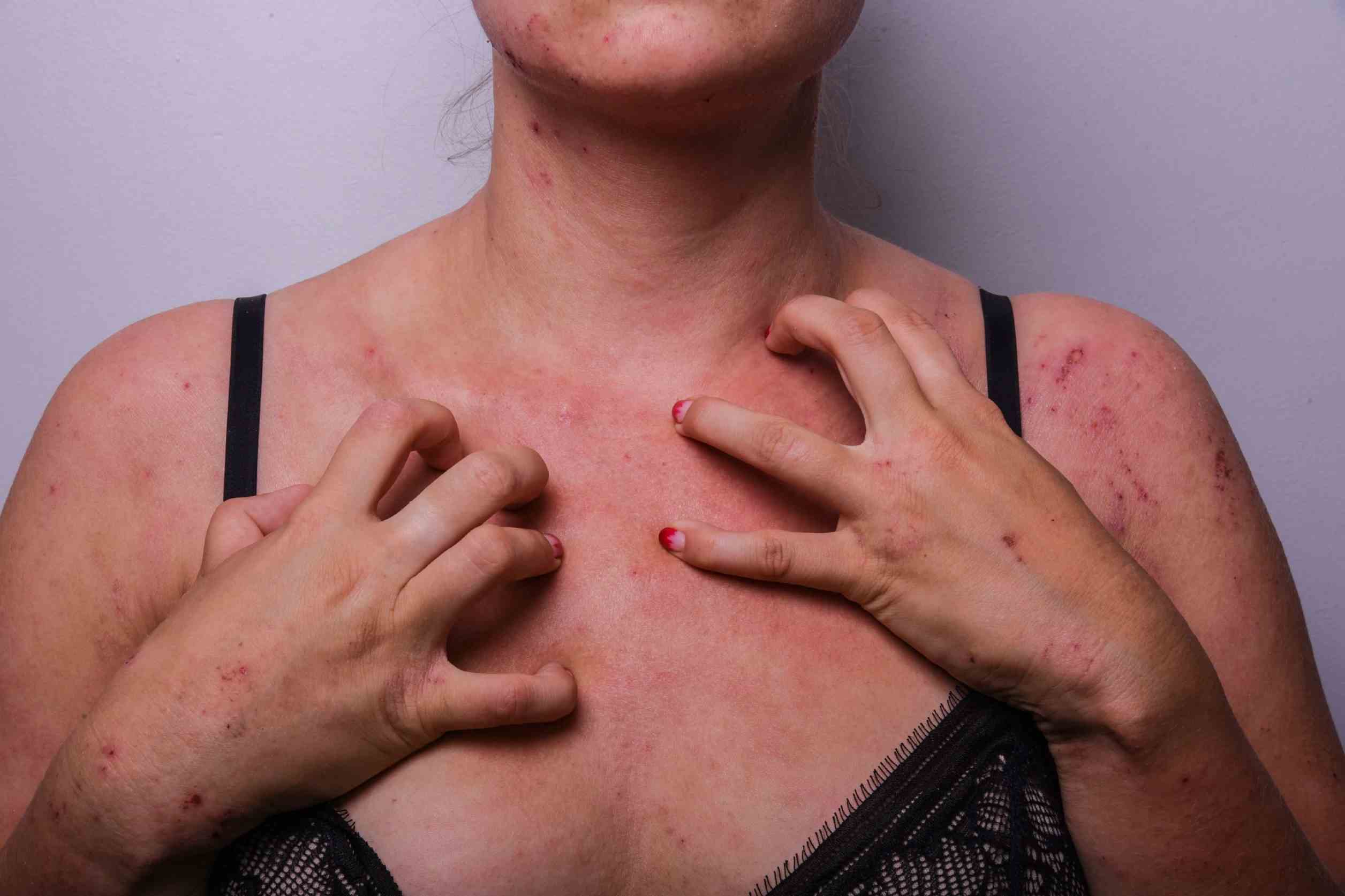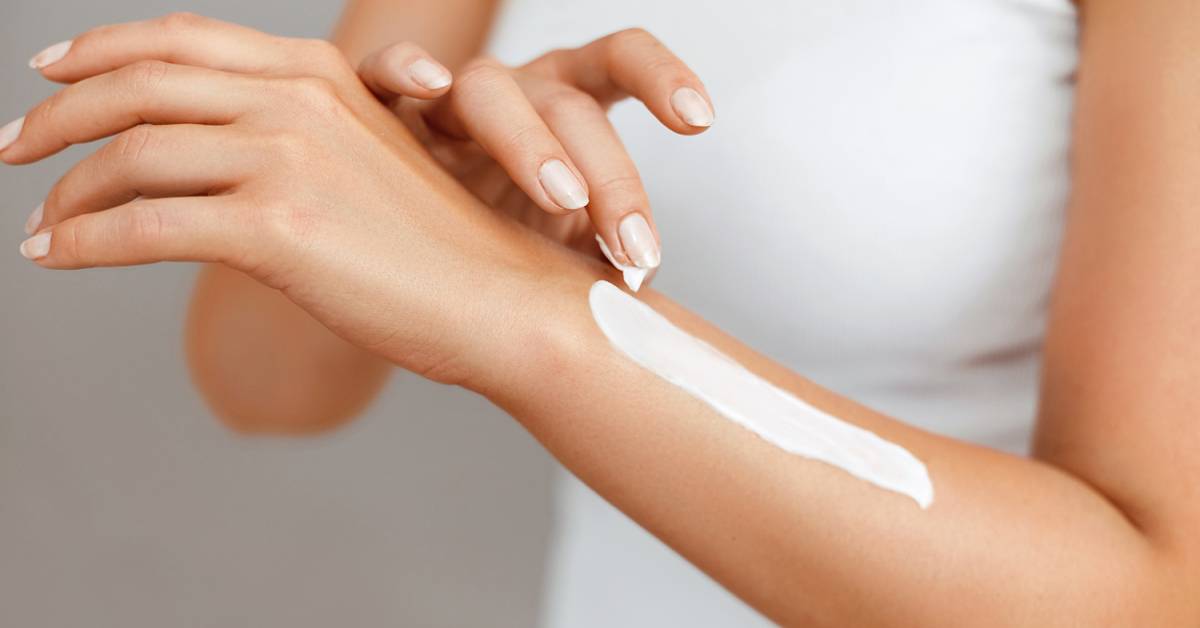Eczema can be an uncomfortable and frustrating skin condition, especially when it affects sensitive areas like the chest. If you’re dealing with eczema on chest, you’re likely searching for solutions that can provide relief. In this comprehensive guide, we’ll walk you through everything you need to know about treating eczema on chest, from its causes and symptoms to effective treatments and preventative measures.
What is Eczema?
Eczema is a chronic skin condition that leads to inflamed, itchy, and sometimes blistering skin. It can appear anywhere on the body, but when it strikes the chest, it can be particularly irritating due to clothing and sweat rubbing against the skin.
Understanding the Basics of Eczema
Eczema, also known as atopic dermatitis, is characterized by patches of dry, red, and itchy skin. While it can appear at any age, it’s more common in infants and children but can persist into adulthood.
Different Types of Eczema
There are several types of eczema, including atopic dermatitis, contact dermatitis, and dyshidrotic eczema. When eczema develops on the chest, it’s typically atopic dermatitis or contact dermatitis, which can be triggered by allergens or irritants.
Causes
Eczema on chest can arise due to various factors. While the root cause is often genetic, external triggers can make it worse.
Genetic Factors
If you have a family history of eczema, asthma, or hay fever, you’re more likely to experience eczema on your chest. Genetics play a significant role in how your skin responds to irritants.
Environmental Triggers
Environmental factors like pollen, pet dander, or even fabrics can cause flare-ups of eczema on chest. Dry air and extreme temperatures can also exacerbate the condition.
Symptoms
Understanding the symptoms of eczema on chest is essential to recognizing the condition early and treating it effectively.
Common Signs to Watch Out For
The hallmark symptoms include red patches, intense itching, and dry, scaly skin. In severe cases, the skin may crack and ooze.
How to Differentiate Eczema from Other Skin Conditions
Sometimes, eczema can be mistaken for other skin issues like fungal infections or heat rashes. Eczema typically feels more itchy and is accompanied by dry, cracked skin, whereas fungal infections might have a moist or ring-like appearance.
How to Diagnose Eczema on Chest
If you suspect you have eczema on chest, the first step is getting a proper diagnosis.
When to See a Doctor
If over-the-counter treatments aren’t helping, or if your symptoms are worsening, it’s time to consult a dermatologist.
Tests and Assessments for Eczema
Doctors usually diagnose eczema through a physical examination, but in some cases, they might perform skin tests to rule out allergies or other conditions.
Effective Treatments
When it comes to treating eczema on chest, there are numerous options, ranging from over-the-counter products to prescription medications.
Over-the-Counter Solutions
Moisturizers and anti-itch creams containing hydrocortisone can provide relief for mild cases of eczema on chest. Look for creams labeled for sensitive skin.
Prescription Medications
In more severe cases, your doctor may prescribe stronger treatments.
Topical Corticosteroids
Corticosteroid creams are often the first line of treatment for moderate to severe eczema. They help reduce inflammation and itching.
Immunosuppressant Creams
For persistent eczema on chest, doctors may prescribe creams that suppress the immune response, such as tacrolimus or pimecrolimus.
Natural Remedies
If you prefer a more holistic approach, there are natural remedies that can help alleviate eczema symptoms.
Aloe Vera
Aloe vera has soothing properties that can help calm irritated skin and reduce redness.
Coconut Oil
Coconut oil acts as a natural moisturizer, helping to lock in moisture and relieve dryness.
Lifestyle Changes to Manage
Apart from treatments, making simple lifestyle adjustments can go a long way in managing eczema on chest.
Importance of Proper Skin Care Routine
Using a gentle, fragrance-free cream and applying a thick moisturizer immediately after bathing can help keep eczema under control.
Wearing Breathable Clothing
Tight clothing can rub against the chest and trigger flare-ups. Opt for soft, breathable fabrics like cotton.
Managing Stress for Eczema Relief
Stress is a known trigger for eczema. Incorporating stress-reducing activities like yoga or meditation can help keep your skin calm.
Avoiding Triggers
Learning what triggers your eczema is crucial in preventing flare-ups.
Common Environmental Irritants
Avoid harsh detergents, soaps, and perfumes that could aggravate eczema on chest. Opt for hypoallergenic products.
Identifying Food Allergies
Some people find that certain foods trigger their eczema. Keeping a food diary can help you identify any potential allergens.
How to Prevent Eczema Flares on the Chest
Preventing eczema on chest requires consistent care.
Daily Moisturizing Routine
Moisturizing daily is one of the simplest and most effective ways to prevent flare-ups.
Using Hypoallergenic Products
Ensure all skin products you use are hypoallergenic and free from potential irritants.
Home Remedies
In addition to conventional treatments, there are several home remedies that might help alleviate the discomfort.
Oatmeal Baths
Oatmeal baths are known to soothe dry, itchy skin and can be an excellent remedy for eczema on chest.
Apple Cider Vinegar
Some studies suggest that diluted apple cider vinegar can help restore the skin’s pH balance.
Honey as a Healing Agent
Honey has antibacterial properties and may help heal cracked skin caused by eczema on chest.
The Role of Diet in Managing Eczema on Chest
Diet plays a vital role in overall skin health.
Foods That Help Eczema
Incorporating omega-3-rich foods like salmon and flaxseed can help reduce inflammation and improve skin health.
Foods That Can Trigger Eczema Flares
On the other hand, some people find that dairy, gluten, or processed foods can worsen eczema on chest.
How to Treat Severe Eczema on Chest
For severe cases, more advanced treatments may be required.
Phototherapy (Light Therapy)
Phototherapy uses UV light to reduce inflammation and can be effective in treating severe eczema on chest.
Biologic Drugs
Biologics like dupilumab target specific parts of the immune system to treat chronic eczema.
Coping with Emotional Effects of Eczema on Chest
Dealing with eczema can be emotionally challenging, especially if it affects your confidence.
Dealing with Social Anxiety
Visible eczema on chest can lead to self-consciousness. It’s important to remind yourself that many people live with skin conditions and that it’s okay to seek support.
Seeking Support from Others
Joining support groups or talking to friends and family can help you cope with the emotional effects of eczema.
When to Seek Medical Attention
Sometimes eczema requires more than just home care.
Signs of Infection
If your eczema becomes swollen, crusty, or oozes pus, it could be infected and requires medical treatment.
When Over-the-Counter Treatments Are Not Enough
If you’ve tried multiple treatments and nothing seems to work, it’s important to consult a dermatologist for a personalized treatment plan.
The Importance of Regular Check-Ups
Regular check-ups can help ensure that your treatment plan is working and that your eczema is under control.
How Regular Monitoring Helps
Seeing your doctor regularly allows for adjustments to your treatment as needed, keeping flare-ups at bay.
Adjusting Treatment Plans
Your treatment may need to be adjusted depending on your symptoms, skin condition, and lifestyle changes.
Conclusion
Eczema on chest can be a frustrating condition, but with the right care and management, you can control flare-ups and reduce discomfort. From lifestyle changes to medical treatments, there are many ways to treat eczema on chest and improve your quality of life.









